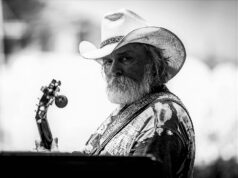Texas troubadour Shakey Graves and L.A.-based, Berklee-trained dynamic duo Lucius will unite for a brief summer tour, and will play The Pines Theater in Northampton, MA on Friday August 11th. The concert is produced by DSP Shows. Tickets can be purchased HERE.
The event marks the return of Lucius to the Connecticut River Valley of Western Mass; while they kicked off their Feels Like Second Nature Tour last year at Mass MoCA in North Adams, they haven’t played Northampton since their appearance at the Academy of Music in 2016.
Read Kelly D’s review of the Lucius concert at Mass MoCA in April 2022 HERE.
Shakey Graves, on the other hand, was one of the headliners at the 2021 edition of the Green River Festival held in Greenfield, MA.
The Valley is excited to welcome these two excellent acts and we thank DSP Shows for hosting them!
ABOUT Shakey Graves
The prehistory of Shakey Graves exists in two overstuffed folders. Inside them, artifacts document an immense era of anonymous DIY creativity, from 2007 through 2010 – the three years before Roll The Bones came out and changed his life.
There are stencils, lyrics, drawings, prototypes for concert posters, and even a zine. The latter, which Graves – aka Alejandro Rose-Garcia – wrote and illustrated, tells the tale of a once-courageous, now retired mouse who must journey to the moon to save his sweetheart. At the time, he envisioned the photocopied storybook as a potential vessel for releasing his music.
“There was a lot of conceptualizing going on – trying to figure out what I wanted stuff to look like, sound like, and be like,” Rose-Garcia recalls, shuffling through the physical files on his second-story deck in South Austin. “And, honestly, a lot of trying to keep myself from going crazy.”
In this lode of unreleased ephemera, CD-Rs are the most bountiful element. There are dozens of burned discs with widely varying track lists, loosely resembling what would become the Austin native’s 2011 breakout debut Roll the Bones . For Rose-Garcia, who’s long loved the incongruous art form of sequencing strange mixtapes for friends, his own record was subject to change every time he burned a disc for somebody. Consistency didn’t matter, he asserts, because there was no demand or expectations.
Thus Roll the Bones was by no means a Big Bang creation story, rather a years long process of metamorphosis where literally hundreds of tracks were winnowed down into ten. As the album took shape, he began manufacturing one-off editions of the CD, stapled to self-destruct in brown paper, with black and white photographs glued upon them, and an ink pen marking of the artist’s enduring logo: a skull struck by an arrow.
“I liked that if they were opened, you couldn’t close them again,” he smiles. “Sometimes I’d spray paint the CD so they looked good and people would stick them in their car stereo and it would fuse in and never come out. They’d tell me, ‘You’re lucky I like this record because it’s the last one I’ll ever be able to listen to in my car.’”
In the shadows self-doubt that surrounds any artists first record, Rose-Garcia had a fantasy: he releases Roll the Bones , only ten people hear it, it’s rediscovered a decade later by Numero Group, hailed as before-its-time, and finds an audience as a lost treasure. He still plays that scenario through his mind like an alternative reality.
Of course, that’s far from what actually materialized. Roll the Bones was released on the first day of 2011 without a lick of promotion advancing it. It was simply thrust into the world as a decapod of perplexingly memorable, narrative-wrapped songs with a mysterious cover and no information about the artist… only available on the relatively new platform of Bandcamp.
That year, an editor at Bandcamp made it a featured album for a month and from there it stayed in the website’s top selling folk albums evermore. The record has since seen well over 100,000 units sold – even while being available for free download. In the “Supported By” section of the Roll the Bones Bandcamp page, you can endlessly click “more” and squares of avatars will keep showing up until you grow tired and stop.
“If you discover something for yourself, it will always hold more water because it’s tied to memory and coincidence,” Rose-Garcia reasons as to why he never pushed Roll the Bones onto a wider marketplace. “It gives you a sense of ownership as a listener.”
Now fans can obtain Roll the Bones as their own physical artifact. Through Dualtone Records, Shakey Graves will release a Ten Year Special Edition double LP with a black and gold foil re-arting of the taxidermied cow head cover. Separate iterations, hitting record collections on April 2, offer the 180g vinyl in a black and gold combination or two marbled “galaxy gold” discs. The lovingly assembled packaging includes handwritten deep explanations of every song, offset with original photography.
Along with its deluxe vinyl emergence, Roll the Bones today becomes available through all digital service providers – Spotify, Apple Music, YouTube, et all. For the last decade, the songs have lived exclusively on Bandcamp. This full-spectrum digital release arrives concurrent with Shakey Graves Day, which was minted on February 9, 2012 by Austin Mayor Steve Adler. Year one, Rose-Garcia spent what he calls his “alter ego’s birthday,” as an excuse to go play laser tag. Ever since, he’s used it as an occasion to stage intimate pop-up shows and open up the attics of his discography – making all of his albums, plus hundreds of unheard songs temporarily available for free.
“I’ve used Shakey Graves Day as a challenge to myself,” he assesses. “I make so many random songs throughout the year that I either forget about or I’m too nervous to put on an album and it becomes a clearinghouse for that. It surprises me when people tell me that something released that day is their favorite of my stuff. In a larger sense, it builds off what I initially did with Roll the Bones – which is give it away for free.”
Accompanying Roll the Bones anniversary pressing are 15 additional tracks comprising an Odds + Ends LP, which stands as an essential document of Grave’s early era. Highlights include the mandolin imbued “Chinatown,” which sounds like it could be dubbed off a 1930’s silver screen soundtrack, and “Saving Face” – a seminal version of what would become Roll the Bones title cut. The crown jewel, however, may be a the first ever proper recording of the trifling love song “Late July,” a version that’s drastically different than the live rendition that’s racked 14 million views on YouTube.
Prepping Roll the Bones thoughtful 2021 edition gave Rose-Garcia an opportunity to take a new look at the person.
“I hear someone who felt really trapped,” he reveals. “In a lot of ways it was a breakup record. My first serious relationship had fallen apart and I was wanting to break up with my life – run away, be transient, and figure out who I was in the world. I can hear myself blaming the girl and trying to support myself, like maybe it’s okay to be dirty and crazy and have blinders on. Then, at the end, everything’s zooming back in and I’m saying ‘I guess I just got hurt and I’m in a bit of pain and, you know, it’s going to be okay.’”
Claiming he’s “further confused” listeners with each release, Rose-Garcia believes this purge of early output will provide some needed framing for his discography. It’s his genesis story, before he had the studio time to make the shiny And the War Came or the full-band cohesion to make the painstakingly dense Can’t Wake Up . To him, it’s a scrappy effort, but the most intentional work he’s ever produced – and, a decade later, he wouldn’t change a thing.
“It’s a record that sounds like my years of exploration and influence, funneled through my abilities at the time – and it all became something bigger,” he muses. “If you would’ve offered to me: ‘Let’s do exactly what you want, right now” Roll the Bones wouldn’t have come out like this… and I’m happy that’s the case. Total control is an unhealthy myth, it leaves out the emotional side of how all the accidents come together. This record’s a period of time smashed into a single product and, in my own heart, it’s a moral compass: to always get back to feeling like this about the songs I make.”
—-
ABOUT Lucius
Every Lucius song begins with what Holly Laessig calls “coffee talks,” in which she and Jess Wolfe share what’s on their minds—and in the spring of 2020, they had a lot to discuss. Since 2007, Laessig and Wolfe have written this way, learning each other’s stories by heart before weaving them into the lyrics and chord progressions of their inventive indie-pop anthems. Onstage, they’re two identically-dressed and coiffed halves of the same whole, the mirror image of each other at the microphone; off-stage, they step into their respective lives—separate, but close—as chosen family. They’ve shared countless joys as they’ve seen the world while touring behind their 2013 debut album, Wildewoman, and its follow-up, 2016’s Good Grief, but they’ve weathered profound losses and lows together, too. And when one of them experiences a seismic shift that shakes their world, the other is there to listen, and reflect, in order to help write through it.
“Holly and I are actual witnesses to each other’s lives,” says Wolfe. “Not only are we able to talk about these things and offer perspective, but she has this unique view into my life, and I into hers. We have been together almost constantly for the last 16 years.”
Second Nature, Lucius’ third album, is the closest thing yet to the musical versions of these intimate conversations. “We’ve gotten so used to helping each other write about very personal things,” says Laessig. “It’s funny, because Second Nature makes perfect sense as a title: it’s become second nature to write for each other. A lot of what we wrote about on the record were things we hadn’t talked about before: there wasn’t a readiness to face some of those things.” The period between Good Grief and Second Nature is the most transformative—and tumultuous—one Lucius has faced to date. In the fall of 2016, Laessig and Wolfe, along with their bandmates, multi-instrumentalists Peter Lalish and Dan Molad, were dangerously close to burning out after three years of relentless touring behind Wildewoman and Good Grief. On top of that, Wolfe and Molad, who had married months before Wildewoman’s release in 2013, had hit a rough patch in their relationship. It was then when Roger Waters invited Laessig and Wolfe to join him on an international tour as his supporting vocalists. The benefits were clear in that urgent moment: if they said yes, this detour would give them an opportunity to explore new sounds in a musical world outside their own. It would also give Lucius the rest it desperately needed in order to survive.
“It was time to keep Lucius intact, but step away for a minute, just to get some perspective and a breath of fresh air,” says Wolfe. “We made a deal with the guys, and let them know this was only a short-term thing—something we felt that could help the band, but also give us some new-found inspiration. That turned into three years. Roger is someone who creates every moment in his mind-blowing show to be something meaningful. To take that and be able to see our own project with new eyes – well, that’s the whole purpose of learning from the people around you, your heroes. It’s to gather all of these wisdoms and put them to use for your own art.”
Their experience with Waters surpassed their wildest dreams, but they were eager to return to Los Angeles—and to Lucius, even though they were unsure as to what, exactly, they were returning to. Molad and Wolfe separated in 2018, but they remained devoted to their creative partnership, even as their marriage dissolved and ultimately ended in divorce. In spite of what was happening at home, Lucius kept working: they recorded and released Nudes, an acoustic album that reimagined previously released material and covers, and Laessig and Wolfe continued to collaborate with the world’s favorite rock and pop stars. They remained busy, but the need to write—and to put all they’d learned, and endured, into their own music—felt stronger than ever.
“People caught wind of us as supporting vocalists, and a lot of artists started inquiring if we’d sing on their records,” says Laessig, who, alongside Wolfe, recorded with Sheryl Crow, Harry Styles, Ozzy Osborne, John Legend, The War on Drugs, and Brandi Carlile, to name a few, before the close of 2019. “It was flattering and honorable to sing with so many people we’ve admired, but after a while, there was an urgency to get back to focusing on the record we needed to make for ourselves. Just as we were doing that, the pandemic hit.”
Co-produced by Carlile, their longtime friend, collaborator, and champion, and Dave Cobb, whose production credits have earned handfuls of Grammys and industry-wide accolades, Second Nature is a new chapter for Lucius in more ways than one. They left Los Angeles and decamped to Nashville in March of 2020, where they crashed with Crow (and wrote their first song for the album, “The Man I’ll Never Find,” on the piano in her living room). They opened themselves up to co-writing, which they’d never done before, and incorporated voices besides their own (both Carlile and Crow contributed backing vocals). Laessig and Wolfe also met separate, but substantial, inflection points while bringing Second Nature into being. Laessig became pregnant with and welcomed her first child. Wolfe and Molad, who had not seen each other since finalizing their divorce, reunited in the studio. There, they commenced with their new normal as bandmates, and proceeded to navigate these songs that were directly inspired by what they’d just lived through.
When the time came to tap into these painful conclusions and hopeful new beginnings, Laessig and Wolfe found themselves gravitating less toward the folkier inclinations of Wildewoman or the experimental urges of Good Grief to express themselves, and more towards the four-on-the-floor inclinations of dance-pop. Carlile encouraged them to push their immense vocal power to its max in order to create “grandiose” moments: “She’d say, ‘You’ve got this in you, you can push this further, let’s go for it, let’s make a thing out of this moment.’ That happened all over the record,” Laessig remembers. Cobb, mostly known for his exceptional work across country and folk, eagerly embraced the chance to direct them to the dance floor.
“Dave at one point said, ‘I wanna make a disco record!’” Laessig recalls. “The fact that was coming from him, it wasn’t something you expected, and it was exciting because it was like “Oh, we’re all gonna do this thing that we’ve never done. That sounds really enticing and fresh.’ After being in lockdown for so long, it felt like we wanted to dance. I don’t think anyone wanted to mope around too much at the end of this.’”
Second Nature fuses funk and disco (which pulses through the title track and “Next to Normal”) with ‘80s new wave (“Heartbursts;” “LSD”) and millennial club catharsis (“Dance Around It”); it draws a throughline from Abba’s unabashed dance floor devotion to Kate Bush’s cerebral art-pop and the vibrant vulnerability of Robyn, all without sacrificing an ounce of Lucius’ own style and ingenuity. And though many of the melodies are synth-laden and steeped in endorphins, the lyrics are very much anchored in the uncertainty, fear, and difficult epiphanies Laessig and Wolfe faced as they wrote through their experiences—direct lines of dialogue seemingly pulled from their coffee talks. “Promises” pairs a sunny acoustic guitar line and sing-along chorus with the play-by-play of a break-up (“Promises, empty like the bed you sleep in/Broken like the spell you’re keepin’”), while “The Man I’ll Never Find” stuns with its poignant apologies (“I thought that it would be you/I wanted it to be you/And I’m sorry I was always looking for the man that I’ll never find”) as much as it does its grand, symphonic arrangement. When Molad first heard the latter, so clearly inspired by the heartbreak they shared, he told Wolfe it was the best song they’d ever written.
Many of the truths of Second Nature are hard to confront, but Lucius learned that there’s so much more to gain from facing the impossible than shying away from it—especially when you’ve got someone standing by your side through it all.
“It is a record that begs you not to sit in the difficult moments, but to dance through them,” says Wolfe. “It touches upon all these stages of grief, and some of that is breakthrough. Being able to have the full spectrum of the experience that we have had, or that I’ve had in my divorce, or that we had in lockdown, having our careers come to a halt, so to speak—I think you can really hear and feel the spectrum of emotion, and hopefully find the joy in the darkness. It does exist. That’s why we made Second Nature and why we wanted it to sound the way it did: our focus was on dancing our way through the darkness.”
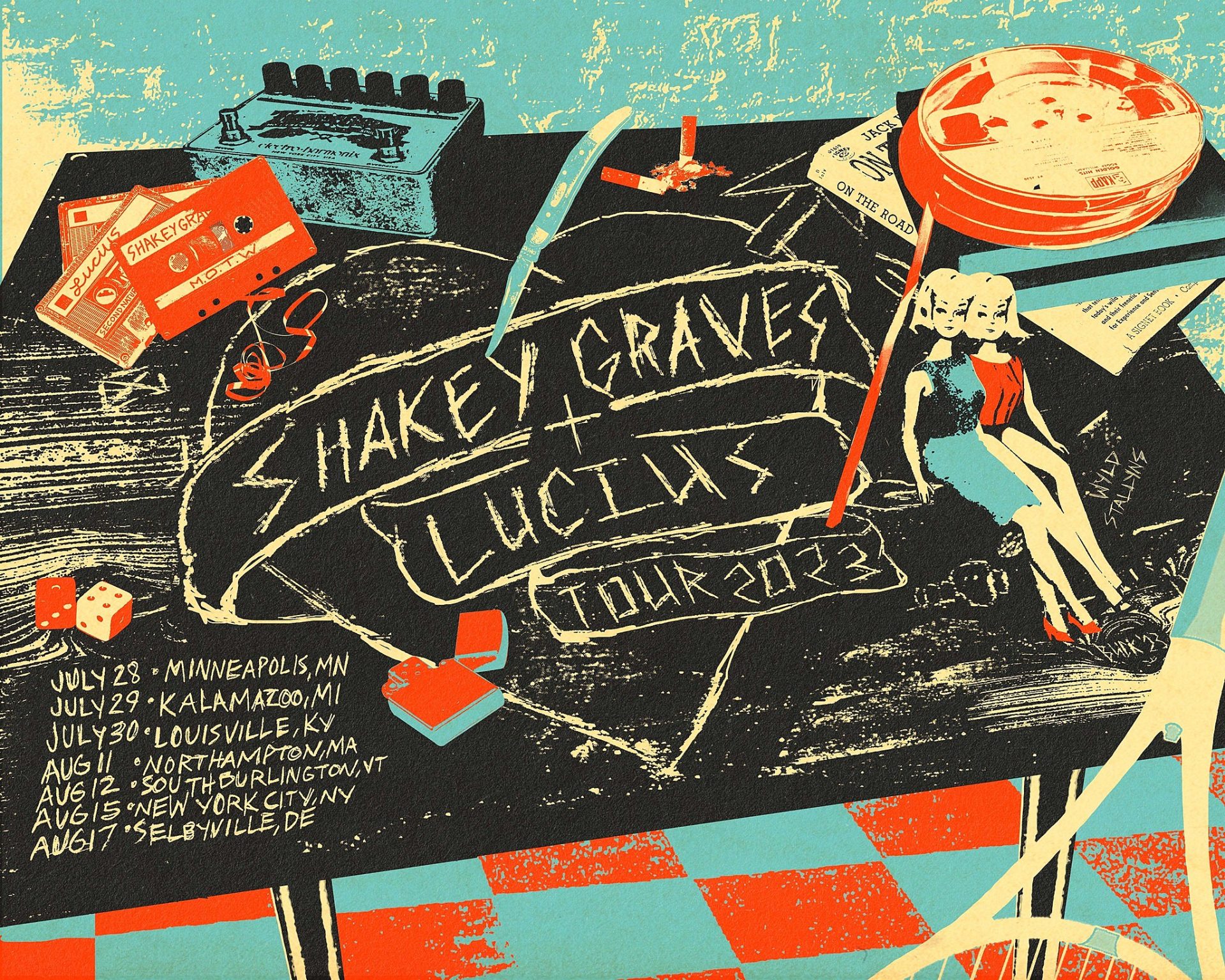
SHAKEY GRAVES SUMMER TOUR DATES
- Aug 9, 2023. Lincoln Hill Farms. Canandaigua, NY
- Aug 11, 2023. The Pines Theater at Look Park. Northampton, MA w/ Lucius
- Aug 12, 2023. The Green at Shelburne Museum. S. Burlington VT w/ Lucius SOLD OUT
- Aug 13, 2023. Guster’s On The Ocean Fest. Portland, ME
- Aug 15, 2023. Pier 17. New York, NY w/ Lucius
- Aug 16, 2023. XL Live. Harrisburg, PA
- Aug 17, 2023. Freeman Arts Pavilion. Selbyville, DE w/ Lucius
- Aug 18, 2023. Stone Pony Summer Stage. Asbury Park, NJ
LUCIUS SUMMER TOUR DATES
- Aug 11, 2023. The Pines Theater at Look Park. Northampton, MA opening for Shakey Graves
- Aug 12, 2023. The Green at Shelburne Museum. S. Burlington VT opening for Shakey Graves SOLD OUT
- Aug 13, 2023. Guster’s On The Ocean Fest. Portland, ME
- Aug 15, 2023. Pier 17. New York, NY opening for Shakey Graves
- Aug 17, 2023. Freeman Arts Pavilion. Selbyville, DE opening for Shakey Graves
- Aug 18, 2023. Stone Pony Summer Stage. Asbury Park, NJ
- Aug 19, 2023. Payomet PAC. N. Truro, MA w/ Charlotte Rose Benjamin


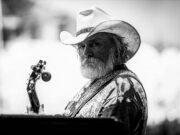
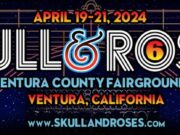


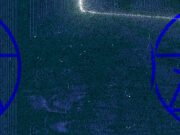
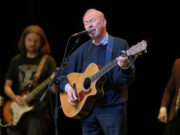
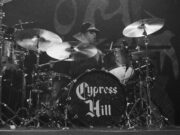




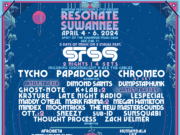

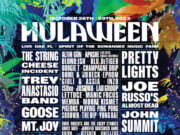

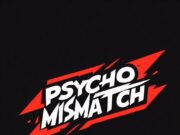
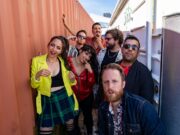
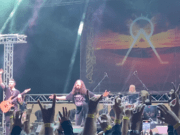
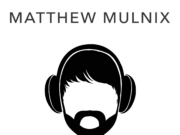
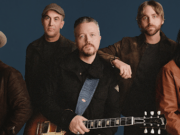



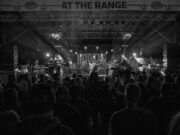

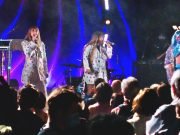
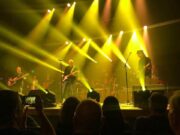
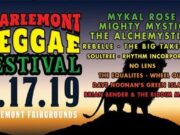
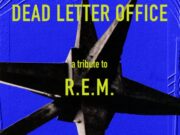
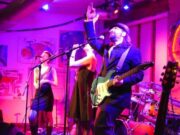
![COMBINED ASSET 2[62]](https://livemusicnewsandreview.com/blog/wp-content/uploads/2023/08/COMBINED-ASSET-262-681x383.jpg)
